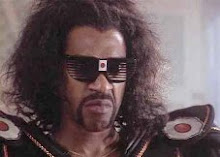Just watched a video about alleged police brutality in West Philly. I'm sick of people who aggravate situations with police and say "oh look what they did to me". Don't provoke them. Get a lawyer and work the courts. Prove them wrong the right way. Don't be a friggin hero. I'm sorry, I have no sympathy for this guy.
There is such thing as an unprovoked attack by police. I wouldn't dare say that police brutality doesn't exit but we as everyday citizens have got to stop crying wolf. We have got start thinking critically about our actions. We have got to say what part did I play in all of this. These organizations that claim to be for civil rights and justice must rethink their approach to defending the rights of criminals. If a law abiding citizen is going about his or her own business and is harassed or abused by police, we must hold them accountable. But we lose credibility when provoke violent responses from them.
I refuse to take any sides in this argument. I see this as an issue of credibility. As everyday citizens we must hold ourselves accountable for our own actions. We shouldn't give the police leverage or justification to brutalize us. If and when we are faced with a case of police brutality, it should be made plainly obvious to any jury or judge who is the real offender.
